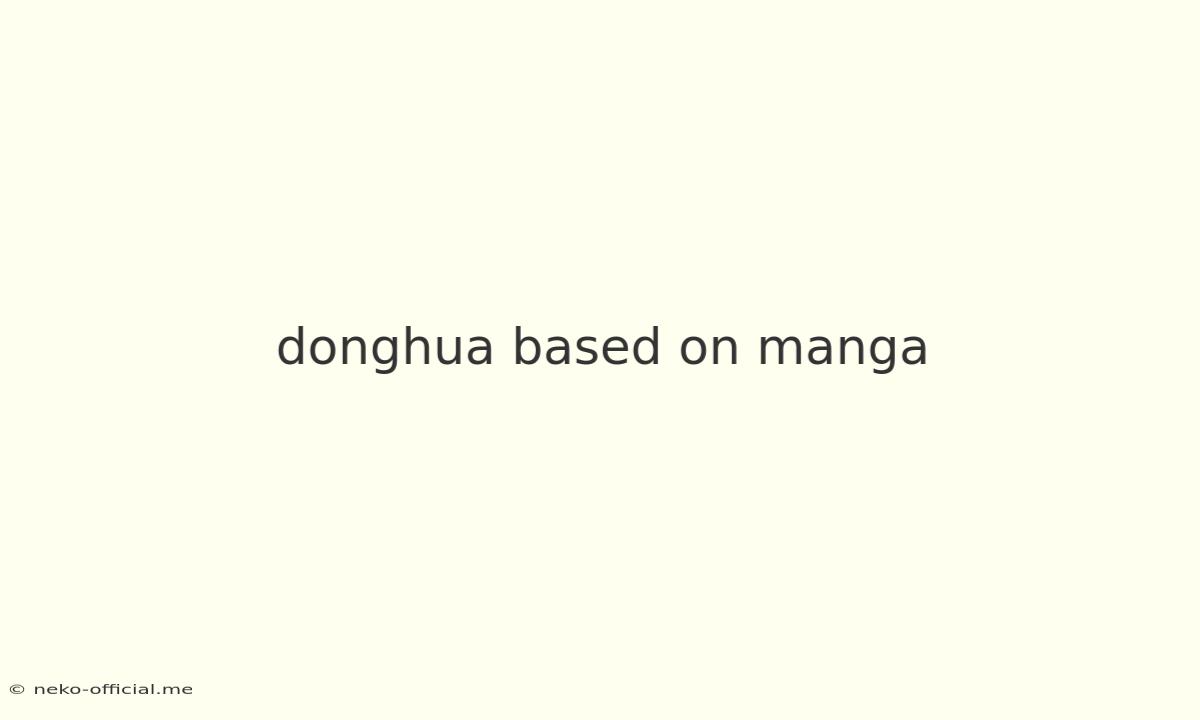Donghua Adapted from Manga: Bridging Two Worlds
Donghua, the Chinese term for animation, has experienced a remarkable surge in popularity in recent years. This burgeoning industry has embraced diverse source material, including manga, the Japanese term for comics. Adapting manga into donghua allows for a unique blend of Eastern aesthetics and storytelling, captivating audiences worldwide.
A Cross-Cultural Exchange:
The adaptation of manga into donghua serves as a bridge between two distinct cultural expressions. It offers a fresh perspective on beloved stories, introducing them to a new audience while preserving their core essence. The visual style of donghua, often characterized by vibrant colors and intricate details, complements the storytelling of manga, creating a visually stunning experience.
Popular Examples:
Several donghua based on manga have achieved critical and commercial success, solidifying the popularity of this trend:
- The King's Avatar: This donghua, adapted from the popular web novel and manga of the same name, follows the journey of a professional gamer who returns to the game after a hiatus. Its blend of humor, action, and thrilling esports elements has garnered a large fanbase.
- Tower of God: This donghua adaptation of the webtoon and manga tells the story of a young man's quest to reach the top of a mysterious tower. Its intricate world-building, complex characters, and captivating action sequences have made it a standout title.
- Spiritpact: Based on the manga of the same name, this donghua features a unique blend of supernatural elements and human drama. It explores themes of friendship, sacrifice, and the complexities of human relationships within a fantastical setting.
Challenges and Opportunities:
While the adaptation of manga into donghua presents exciting opportunities, it also presents unique challenges:
- Fidelity to Source Material: Balancing faithfulness to the original manga with the need to appeal to a new audience is crucial. Some adaptations might make minor changes to streamline the narrative or cater to the sensibilities of the donghua audience.
- Visual Style: Reconciling the stylistic differences between manga and donghua can be challenging. The animation style must complement the existing art while preserving the essence of the original work.
- Localization: Translating the cultural nuances and humor of manga into a Chinese context requires careful consideration to ensure cultural sensitivity and accessibility.
The Future of Donghua:
As the donghua industry continues to grow, the adaptation of manga will likely play an increasingly prominent role. This collaboration between two distinct forms of media offers a fascinating glimpse into the future of animation, where cultural boundaries blur and storytelling transcends geographical limitations.
